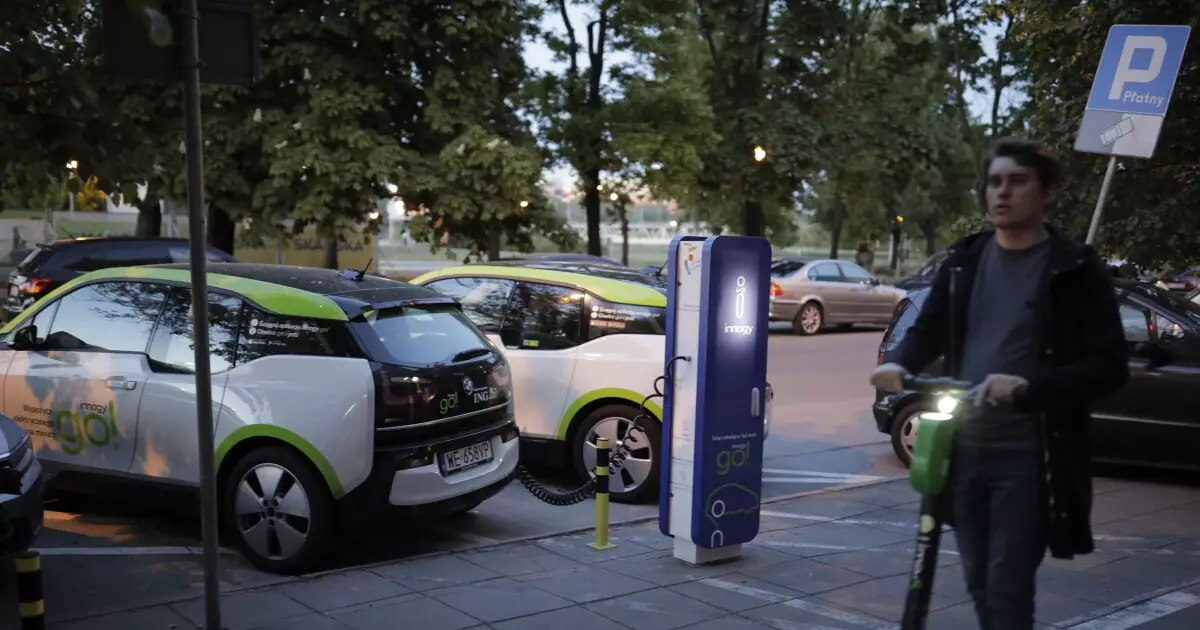The recent decisions made by the House Transportation and Infrastructure Committee reflect a troubling trend in how our nation approaches infrastructure financing. On one hand, there is a clear recognition of the need to reinforce the Highway Trust Fund (HTF), which has been teetering on insolvency for years; on the other hand, the methods chosen by the Republican majority illustrate a lack of foresight and an unwillingness to embrace sustainable revenue solutions. The decision to abandon a proposed annual $20 registration fee on vehicles betrays the ambivalence within the GOP ranks and raises questions about their commitment to ensuring adequate funding for roads and bridges.
This proposed fee, seemingly modest, could have been a stepping stone towards revamping an outdated funding system reliant on dwindling fuel tax revenues. By axing the fee, the party risks further jeopardizing the already dire financial stability of the HTF. Committee Chair Rep. Sam Graves asserts that his aim is to stimulate discourse surrounding the HTF’s future; however, the ultimate outcome appears to be a continuation of ad-hoc financial fixes that fail to confront the larger systemic issue.
The Disconnect Between Accountability and Revenue Generation
An interesting element of this legislative journey is the proposed increase in fees on electric and hybrid vehicles. A $250 annual fee on electric vehicles and a $100 fee on hybrids might seem a logical rationale to incorporate these burgeoning sectors into the infrastructure funding framework. Yet, by solely focusing on these fees as a means to extract more revenue, the committee is running the risk of alienating a crucial demographic of environmentally conscious voters.
While the fees raise a projected $38 billion over the next decade, this method overlooks a broader accountability issue. It pits electric and hybrid vehicle users against those who drive traditional gas-powered vehicles. Rather than unifying drivers behind the cause of sustainable road funding, this approach fosters division and may alienate those who are genuinely invested in transitioning to greener alternatives.
Furthermore, the GOP’s rhetorical commitment to cutting “wasteful” spending while making room for “historic” investments in the Coast Guard and air traffic control mirrors a deceptive logic. While it is paramount to enhance border security and modernize air traffic systems, dismissing critical social investments as mere budgetary fluff underscores a skewed perspective on what constitutes national priority.
Partisan Dynamics and the Shape of Future Initiatives
The partisan lines drawn during the recent markup hearing add yet another layer to this complex narrative. The fact that all Democratic amendments were defeated signals a stark divide that hinders any meaningful bipartisan cooperation essential for durable policy solutions. The insistence on budget cuts that primarily diminish essential programs intended for environmental and community improvements, along with a harsh critique from Ranking Member Rep. Rick Larsen, reflects a reactive and, some may argue, reckless approach.
The air of determination from the GOP echoes through their continued cuts, which seemingly cater to a narrow constituency at the expense of broader public welfare. Their legislative maneuvers are a reflection of what some perceive to be a myopic understanding of infrastructure needs: prioritize short-term financial gains over sustained, impactful investment in the fabric of American society.
Conservative Values or a Quandary of Conflict?
As a center-right liberal, witnessing this conundrum raises questions about how conservatism can genuinely contribute to the progress of society. Balancing fiscal responsibility with necessary investment in public goods is no small feat, but the approach taken by the House committee hints at a fundamental misalignment between conservative values and the pragmatic solutions that the American people most urgently require.
The refusal to adopt a long-term view on financing highways, coupled with punitive measures against federal employees and pressing cuts to essential programs, sends a discouraging signal about the trajectory of governance. Policymaking should be about fostering a cohesive vision for the future, not about win-lose scenarios. For the sake of infrastructure, it is imperative that Republicans and Democrats harness their energies towards shared goals that prioritize both accountability and development—not merely playing to their bases at the potential cost of national stability.

